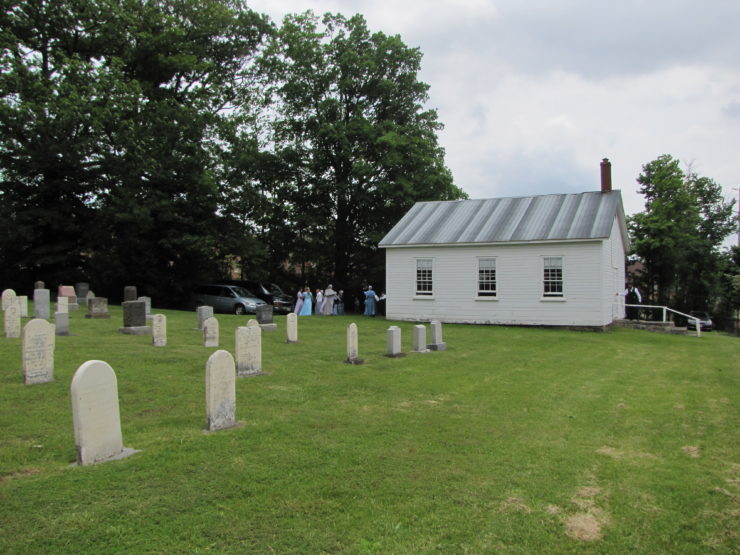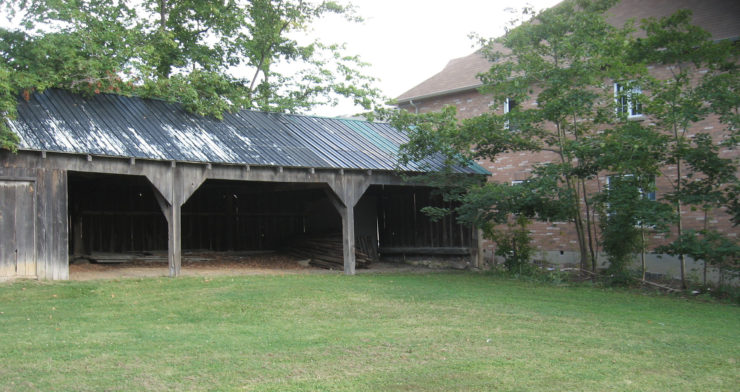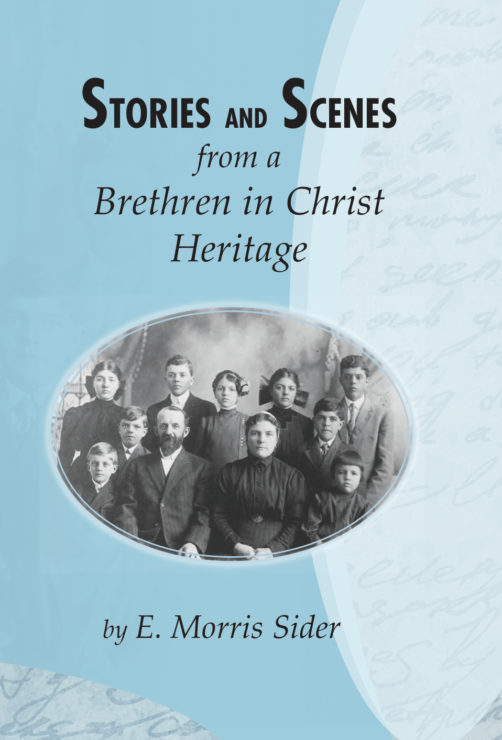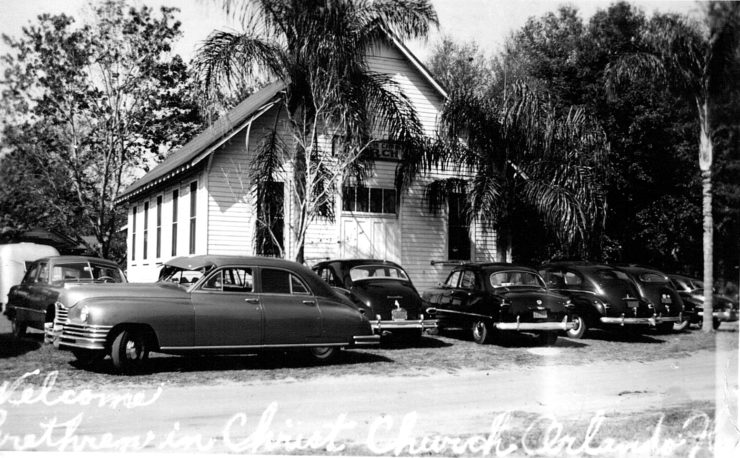National Workshop on Race and Reconciliation, Atlanta, GA, June 13-15, 1975
Adapted from a June 1975 report to members of the Brethren in Christ Commission on Peace and Social Concerns, written by John K. Stoner.
It is my impression that the idea for the Workshop emerged from the ferment of the Chicago Thanksgiving Workshops for Evangelicals and the Brethren in Christ Mission Board’s Urban Study Committee. Whatever the mix of these two in forming the concept, the reality took shape because the Board for Missions appropriated just under $3,500 to fund the workshop. [In 2018 dollars, that would have been about $16,000.]
Attendance at the workshop was by invitation. Approximately 100 persons were registered, slightly less than half of them black. Premnath Dick, Dan Ebersole, Beth Heisey, Glen Pierce, Ronald J. Sider, and I were the Brethren in Christ present. Glen, Beth, and Dan were not in many sessions because of duties connected with hosting the workshop. . . .
One might try to assess the significance of the workshop by asking, “Did any structure emerge from it to carry on an evangelical interdenominational race relations program?” I would say that the potential for such a thing emerged. At an early Sunday morning session, with 35-50 persons present, action was taken to ask the planning committee to carry on, to expand its present membership of 15, and to formulate an action proposal—something like the proposed interdenominational/evangelical program on race and reconciliation which came from the Brethren in Christ Urban Study Committee. This proposal for action would constitute the main agenda for a future large meeting.
Another way to evaluate the workshop is by asking what significant personal contacts, conversations and relationships happened among workshop participants. Looking at the roster of people present, one would assume that some useful dialogue would have occurred among people representing such diverse ministries as the David C. Cook Publishing Co., The Other Side, the Fuller School of World Mission, the Voice of Calvary (John Perkins in Mississippi), the Post-American [now Sojourners], the Billy Graham Evangelistic Association, the Tom Skinner Evangelistic Association, the Southern Baptist Convention, the National Black Evangelical Association, etc. For example, I was in a discussion group that dialogued for two hours with Peter Wagner, one of the chief church growth theoreticians from Fuller. . . .
In summary . . . evangelicals surely need to do more on race relations than hold a workshop, but it is hard to see how they could justify doing less. . . . I commend the Board for Missions for supporting this workshop [and] hope that the Brethren in Christ will continue to support this effort toward an interdenominational evangelical program on race and reconciliation.
From the Board for Missions 1974 report to General Conference:
“Believing that the church’s historic interest in and call to the cities of America had not ended and seeking to provide for faithful continuation of city work, the Board for Missions in 1972 authorized a major study of urban ministries. . . .
“Whereas, a Department of Urban Ministries could provide resources to Board for Missions enterprises and to the general church by working with city missions and urbanizing congregations, as well as helping to develop new urban ministries, we therefore
“Recommend that General Conference authorize the creation of a Department of Urban Ministries. . . . ”
Part of the “Urban Ministries” section of the mission board’s report to the 1976 General Conference:
“In helping to plan for [the National Workshop on Race and Reconciliation in Atlanta], Brethren in Christ leaders have aided in bringing a Christian response to one of the most vexing issues confronting the church today – racial oppression.
“A continuing witness to the gospel of unfettered love is given through Brethren in Christ participation with two evangelical black Christian missions programs in Philadelphia, PA. The Christian Stronghold Missionary Society [in West Philadelphia] and the Southside Center [South Street] both have a vision for an interracial witness for Christ. . . .”
From the 1978 General Conference Minutes:
The Board for Missions received approval to create a new position, Secretary of Home Ministries, which included the work of the Secretary of Urban Ministries (created in 1974 in response to the urban ministries study).
Editor’s note: The Brethren in Christ Board for Missions, through its Secretary of Urban Ministries, helped to sponsor a follow-up consultation in Newark, NJ, in October 1976. Growing out of that Newark meeting, a November 1976 meeting was co-sponsored with Evangelicals for Social Action (ESA) at the Temple campus of Messiah College, which resulted in a restructuring of ESA.



 At the Historical Society’s annual meeting in September, we celebrated the release of Stories and Scenes from a Brethren in Christ Heritage, the 33rd book by Society editor emeritus E. Morris Sider. The bookfeatures a variety of stories on such themes as courtship and falling in love, family life, evangelism and conversion, compassionate ministries and peacemaking, and responding to God’s call.All members of the Society received a free copy of the book, and additional copies are available for sale at $12.00 each.
At the Historical Society’s annual meeting in September, we celebrated the release of Stories and Scenes from a Brethren in Christ Heritage, the 33rd book by Society editor emeritus E. Morris Sider. The bookfeatures a variety of stories on such themes as courtship and falling in love, family life, evangelism and conversion, compassionate ministries and peacemaking, and responding to God’s call.All members of the Society received a free copy of the book, and additional copies are available for sale at $12.00 each.